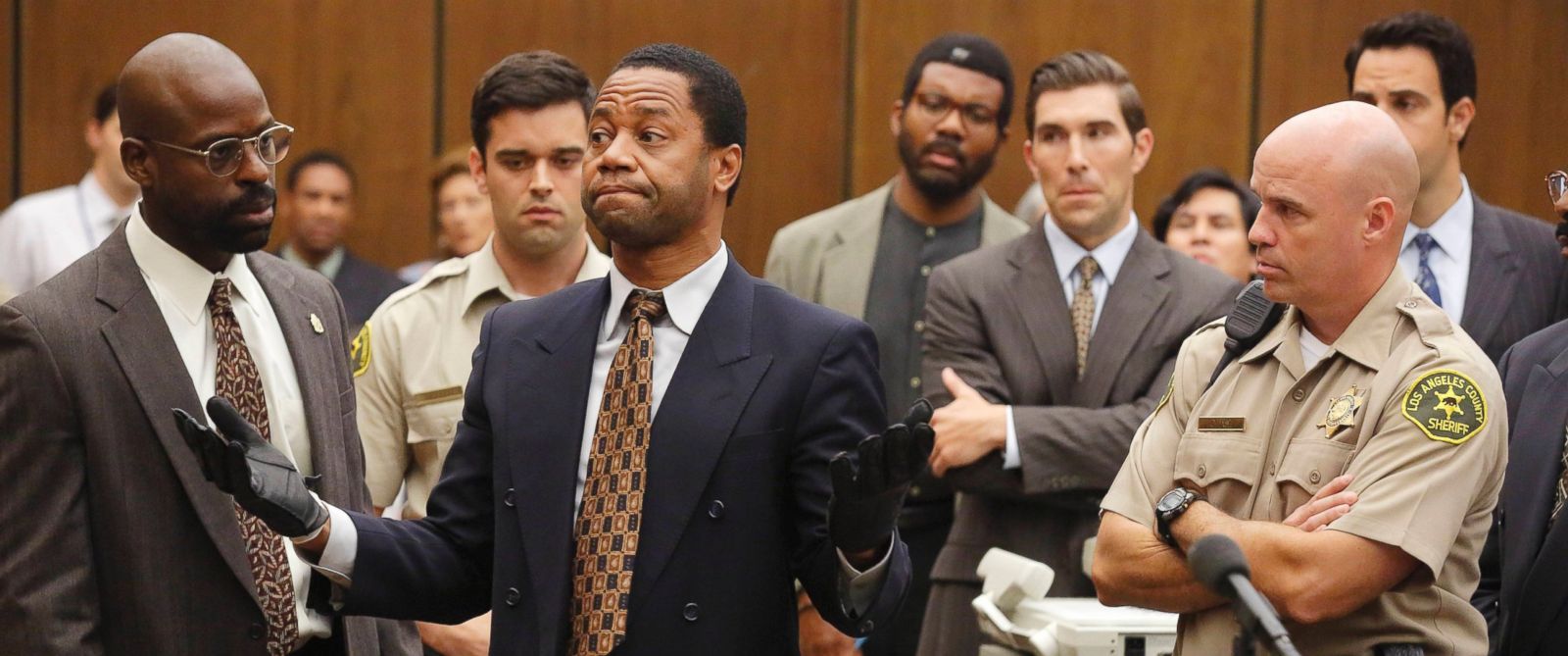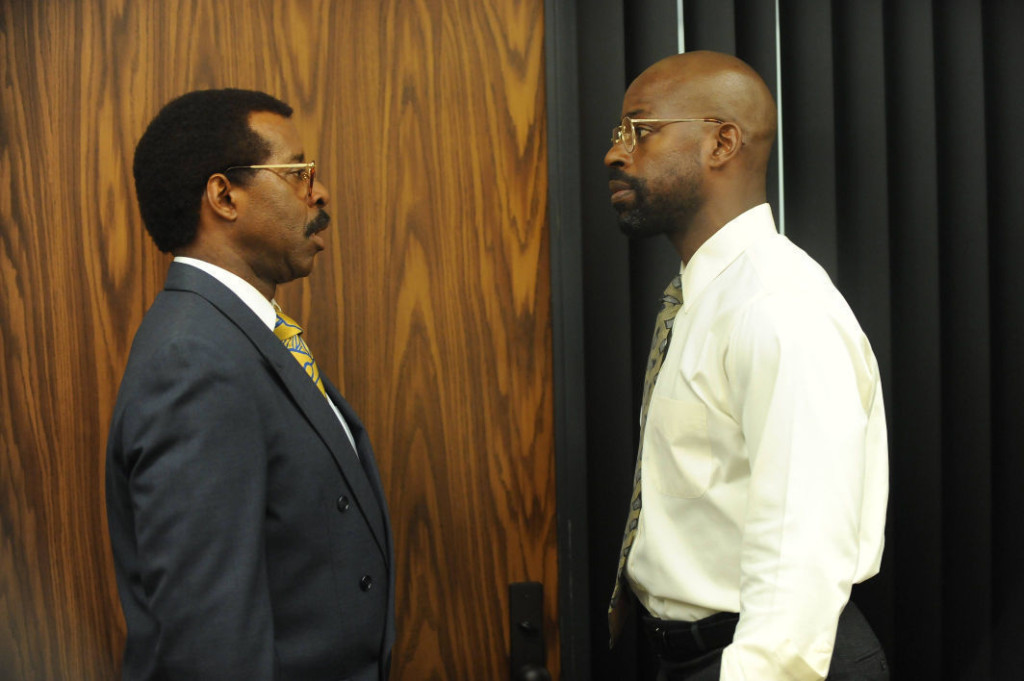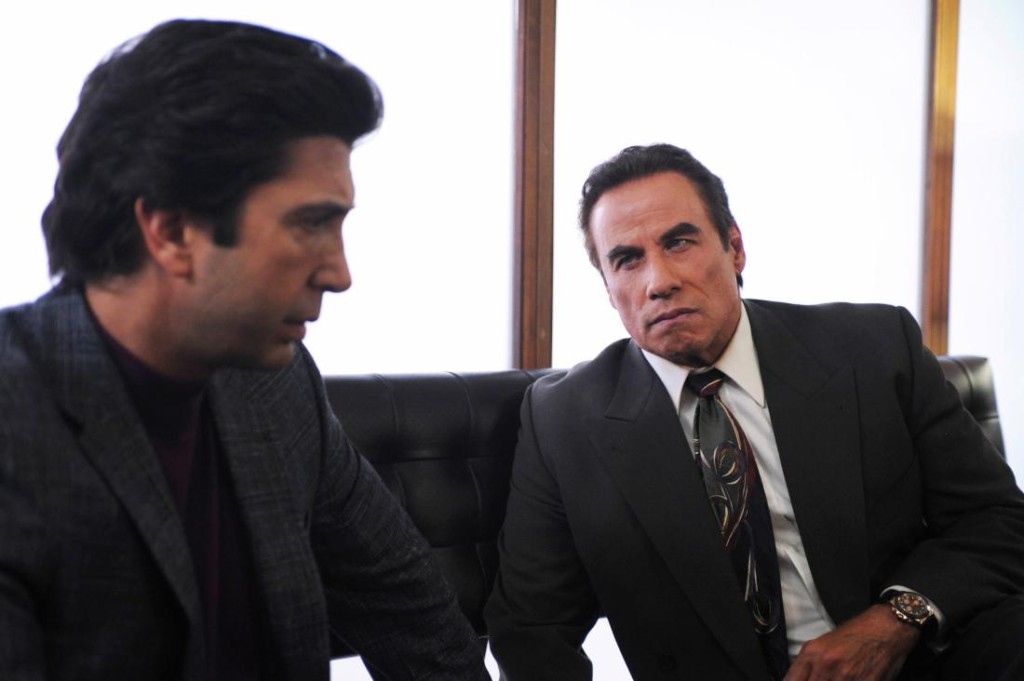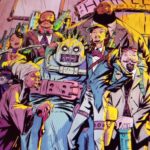
How did a Ryan Murphy series about a sensational circus of a trial become some of the best, smartest and most addictive television of the year?
American Crime Story: The People v OJ Simpson should have been bad. It probably would have been just as watchable, but by all accounts it should have been campy and terrible. The story was a lurid murder trial involving a celebrity, the 24 hour news cycle, race, and courtroom antics that would stretch belief in a potboiler novel. The actors hired included a seemingly miscast Cuba Gooding Jr as OJ Simpson himself as well as John Travolta and David Schwimmer, neither of whom were exactly in creative high-points in their careers. To cap it all off the series producer was Ryan Murphy, the sensationalist mind behind Nip/Tuck, Glee and American Horror Story.
How could this show end up being anything but a train wreck?
Weirdly, week after week, the show kept proving my preconceived notions wrong. The show had a surprising handle on its own tone, treating the important issues (race, murder, sexism, etc.) with measured respect while not being afraid to bring the right level of camp when necessary. The actors, all of them, were perfectly cast and played their roles as well-rounded, sympathetic people, not just caricatures.
Most importantly, Ryan Murphy took a step back. His style is still visible in the final product, but he allowed the creators of the series, Scott Alexander and Larry Karaszewski, to tell the story as necessary. There was no undue embellishment, because this story definitely didn’t need it.
“You put me on this trial because you wanted a black face but the truth is you never wanted a black voice.”
This line is said in the 9th episode of the series, delivered to Marcia Clark (Sarah Paulson) by Christopher Darden (Sterling K. Brown) and it was an absolute gut punch. To me, this moment was the emotional climax of the entire show. The series opens with actual footage from the 1992 LA riots, immediately setting up the themes of the series: the 24 hour news cycle, fame, and especially race.

As an audience, our entry to the race discussion in the show are Darden and Johnnie Cochran (Courtney B. Vance) who play lawyers on opposite sides of the trial with fairly opposite styles. Vance’s Cochran is smart and showy and almost steals the show, much like the real-life Cochran. He has an understandable vendetta against the LAPD and considers the trial his duty. Darden, as played by Brown, is much more unsure about his position. He’s torn between his job and being a black man who has to work with, and usually defend, a racist institution. Their scenes together are fireworks, and while Vance’s top-notch work isn’t a surprise, Brown is a revelation.
The best decision the show makes is narrowing the focus of each episode, either on a specific character or characters (Marcia Clark in “Marcia, Marcia, Marcia”, the jury in “A Jury in Jail”) or specific incidents (the second episode, “The Run of His Life”, deals entirely with the Bronco chase). By focusing on smaller moments it made me totally reevaluate people who I’d previously made my mind up about.
Marcia Clark and Chris Darden were people I had pretty much written-off. They were bunglers who were both recently parodied in The Unbreakable Kimmy Schmidt and who I’d already scoffed at while reading Vincent Bugliosi’s great book Outage: The Five Reasons Why OJ Simpson Got Away With Murder. The writers, along with Paulson and Brown, imbue the characters with the kind of humanity news programs and gossip magazines had absolutely no interest in.
Shockingly, the heart and soul of the series ended up being David Schwimmer’s Robert Kardashian. The patriarch of the Kardashian clan (whose children the show definitely shows some disdain for) is portrayed as an honourable, loyal friend and person. He believes in OJ. Because of this he becomes a tragic figure and, once he hears the DNA testimony, Schwimmer perfectly plays the slowly dawning horror of someone who realizes that, not only did his friend probably commit these murders, but that he’s helping him get away with it.

Every character who was seen as a joke, whether it was Robert Shapiro (John Travolta), Judge Lance Ito (Kenneth Choi) or even Kato Kaelin (Billy Magnussen), is given at least one scene that humanizes them or puts us in their mindset. We may still think they’re ridiculous, but we can at least understand them.
Except Mark Furhman (Steven Pasquale), who… you know… garbage person.
The series also excelled at using our knowledge of the trial to increase the tension in each scene. Knowing about the gloves made every mention of them a foreboding experience. Knowing about how much of a garbage person Mark Fuhrman is informed every interaction leading up to his final testimony. The show touched on all of the famous moments of the case (the Bronco chase, the jury protest, the Newsweek cover, the Dancing Itos, etc.) and either re-contextualized them or used them as dramatic irony.
It helped that The People v OJ Simpson was beautifully shot. John Singleton directed episode 5, “The Race Card” and a scene between F. Lee Bailey (Nathan Lane) and Mark Fuhrman is shot with intense, quickly cut push-ins that gives the cross-examination the importance it deserved. The use of real-world news footage in certain episodes was always thoughtful, keeping us in the right mindset of the time.
American Crime Story: The People v OJ Simpson was a show that, by all accounts, shouldn’t have worked. But it did. There were 10 great episodes of television produced and I’d consider the series a modern classic. They managed to find themes that resonate to this day without needing to look very far. I would be shocked if the major players didn’t get Emmy recognition.
The second season of American Crime Story is set to deal with Hurricane Katrina, a different crime altogether. Will it be as good? Will it resemble Fargo season 2 or True Detective season 2? I don’t know. I do know that the first season built up a lot of goodwill.
The best thing the series recreated about the trial was the most important thing: it was must-watch television.

![[LIST] PORTAL FANTASY FAVORITES TO TAKE YOU INTO A NEW WORLD](https://geekd-out.com/wp-content/uploads/2021/03/PortalFantasyHeader-150x150.png)

